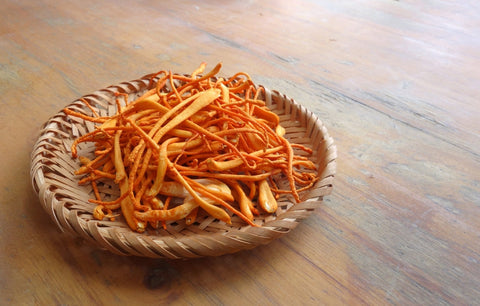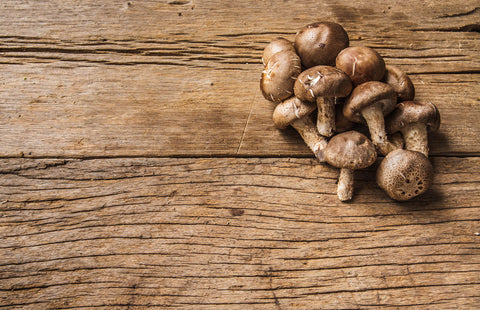The world is waking up to the wonders of functional mushrooms, and one name consistently stands above the rest: Reishi. Known as the “Mushroom of Immortality,” Reishi mushrooms (Ganoderma lucidum) have been prized for centuries in traditional medicine. Now, an exciting wave of modern research is revealing why Reishi deserves its reputation — highlighting powerful effects on the immune system, resilience against stress, promising cancer support, and broader health benefits. In this week’s feature, we explore The Health Benefits of Reishi, diving deep into the latest science, the promises, the precautions, and what you should know before adding this ancient superfood to your wellness routine.
Introduction: The Mushroom Powerhouse Changing Modern Wellness
Reishi isn’t just another trendy superfood. Revered for over 2,000 years, this striking, crimson-brown mushroom was once reserved for emperors and nobility. Now, you’ll find it starring in powders, coffees, teas, and supplements on health food shelves worldwide. But what does the science say? Are the claims about Reishi’s health benefits justified? Our reporter’s lens zooms in on the most up-to-date research and official findings behind the buzz.
Let’s unlock the truth about the health benefits of Reishi — and find out if this mushroom can truly supercharge your everyday life.
1. Immune System Support: Reishi, Your Immune Ally?
Perhaps the most celebrated benefit of Reishi is its effect on the immune system. This isn’t just folklore — several scientific studies confirm Reishi’s remarkable ability to influence the activity, number, and effectiveness of the body’s white blood cells, the key players in immune defense [1][3][4].
How does it work? Reishi mushrooms are packed with bioactive compounds — especially polysaccharides and triterpenes — that appear to signal and modulate the immune system at the genetic level. In plain terms: they help white blood cells become more alert and active, increasing the body’s defenses against pathogens like viruses and bacteria [1][3].
Clinical experiments have shown increased production and improved function of lymphocytes, a type of white blood cell that safeguards us from infections. For anyone looking to support immune strength (and especially during colder months), Reishi might be a powerful ally [1][3]. Learn about other mushrooms for immune support
2. Anti-Cancer Properties: Hopeful, but Handle with Care
Another area where Reishi is making headlines is its potential anti-cancer effects. In both laboratory and small-scale human studies, Reishi extracts have demonstrated the ability to inhibit tumor growth, stimulate immune cells that can fight cancer, and possibly improve quality of life for cancer patients [1][5].
Specifically, Reishi may help the body target and slow the progression of breast, prostate, and colorectal cancers [1][5]. Research suggests that Reishi can enhance immune activity and suppress the proliferation of cancer cells when used in conjunction with mainstream treatments, such as chemotherapy and radiation. For example, cancer patients who supplement with Reishi have reported less fatigue, improved emotional well-being, and an enhanced overall quality of life [1][5].
But caution is needed: while these findings are promising, experts stress that Reishi should never replace conventional cancer therapies. The vast majority of supporting studies are still preliminary; more large-scale research is required before definitive claims can be made [1][5]. If you or a loved one are considering Reishi as support during cancer treatment, consult your doctor and explore it as a complement, not a cure.
Explore how Cordyceps is also being researched for cellular health support
3. Fatigue and Mental Health: Nature’s Energy and Mood Booster
If you’ve ever felt wrung out by stress or mood struggles, Reishi mushrooms might offer a glimmer of relief. New research suggests Reishi can significantly reduce fatigue and symptoms of depression [1][2][3][5].
Reishi’s active ingredients may help balance neurotransmitters, including serotonin and dopamine, which are essential for feelings of calm, energy, and motivation [2]. This gentle, natural regulation is believed to alleviate anxiety, foster emotional stability, and even promote restful sleep.
Clinical trials provide real-world evidence: people with chronic fatigue syndrome or those undergoing demanding medical treatments have reported increased vitality, reduced feelings of hopelessness, and improved day-to-day functioning after using Reishi[3][5].
Find out how Lion's Mane may also support mood and cognitive performance Read about natural nootropics and their mood-boosting effects
4. Adaptogenic Magic and Hormone Balancing
As global interest in “adaptogens” soars, Reishi’s reputation grows as one of nature’s finest. An adaptogen is a plant or mushroom that helps the body manage stress, boosting both physical and mental resilience in response to challenging circumstances [2].
How does this manifest in real life? Reishi is believed to help regulate the stress hormone cortisol, allowing your body to maintain balance when life becomes hectic. By taming surges in cortisol, Reishi may also indirectly improve other hormone-related symptoms, such as stress-driven appetite changes or mood swings [2].
This means that a daily Reishi supplement might make it a touch easier to face “fight-or-flight” moments, whether at work, school, or in personal life. The adaptogenic properties of this mushroom are a major reason it earns a spot in so many stress-fighting wellness routines worldwide [2]. Explore other powerful adaptogens like ashwagandha.
5. Cardiovascular and Metabolic Perks: What the Science Says
Beyond its effects on mood and immunity, could Reishi support heart health and healthy metabolism? The early indicators are intriguing.
Preliminary research suggests Reishi supplementation may help improve blood sugar regulation, decrease circulating triglycerides, and gently boost HDL (“good”) cholesterol [4][5]. In animal studies and a handful of early human trials, Reishi demonstrated the ability to lower fasting blood glucose and improve markers tied to risk of diabetes and heart disease.
Animal research also suggests reduced arterial plaque and blood pressure, indicating potential cardiovascular protection [5]. That said, the effects appear modest in otherwise healthy individuals, and more robust human research is needed to fully substantiate these claims. [5].
If you’re seeking natural support for metabolic balance — especially when combined with a healthy diet and active lifestyle — Reishi may be a helpful adjunct. Still, it shouldn’t be relied upon in isolation.
Discover how other functional mushrooms support metabolism and well-being.
6. Anti-Inflammatory and Antioxidant Power: The Cellular Shield
One of the most exciting applications of Reishi lies in its antioxidant and anti-inflammatory properties. Chronic inflammation and oxidative stress are at the root of many age-related and lifestyle diseases, from arthritis to dementia.
Reishi mushrooms are rich in compounds that neutralize free radicals (unstable molecules that can harm our cells) and modulate inflammatory pathways in the body [3]. These actions protect cellular health, support tissue regeneration, and may even slow the march of age-related decline.
By reducing oxidative stress, Reishi can help the body better combat chronic illnesses and promote graceful aging [3][5]. This is why health enthusiasts turn to Reishi during high-stress seasons, periods of transition, or when seeking to maintain overall robust health.
7. Additional Benefits: Infections, Brain Health, and More
Reishi’s health support doesn’t stop there. According to a range of studies, this remarkable mushroom may:
- Strengthen the body’s defenses against a broad range of infections, including those caused by viruses, bacteria, and fungi [3].
- Support better well-being during times of high vulnerability, like cold and flu season, or when recovering from illness [3].
- Possibly provide nootropic benefits for brain health and cognitive function, although research here remains in its early stages [2].
The breadth of Reishi’s potential is nothing short of thrilling — but remember, not every benefit is equally well-validated yet, especially when it comes to brain support [2].
Explore how Lion's Mane is shown to sharpen brainpower and support neurogenesis
Risks, Caveats, and Quality of Evidence: What You Should Know
This news report would be incomplete without a balanced look at risks and limitations.
- Most scientific findings about Reishi’s benefits stem from animal studies, test-tube experiments, or small groups of people who already have health conditions like cancer or chronic fatigue syndrome [1][5]. Evidence in healthy populations is currently limited.
- Side effects are rare and typically mild. These can include digestive upset, dry mouth, rash, or allergic responses in sensitive individuals [5].
- Safety first: Reishi should NOT replace medical therapies, especially for severe conditions. Always consult your healthcare provider before starting any new supplement, especially if you have pre-existing conditions or take prescription medications.
Conclusion: The Reishi Renaissance — Ancient Wisdom Meets Modern Science
From revered traditional remedy to modern wellness superstar, the Reishi mushroom is earning its place in the spotlight. Today, the evidence strongly supports their role in:
- Boosting and modulating the immune response
- Supporting cancer patients (as a complementary, not alternative, therapy)
- Helping relieve fatigue, low mood, and anxiety
- Supporting resilience against stress (adaptogenic effects)
- Providing some cardiovascular and metabolic support
- Protecting cells with antioxidant and anti-inflammatory effects
Excitement about Reishi is justified, but it’s important to remember: the most compelling results involve vulnerable populations or are still being explored in labs. For immune and anti-fatigue benefits, the data is particularly promising. As researchers unravel more of Reishi’s secrets, large gold-standard trials will provide clarity on its true health potential [1][5].
For now, if you’re searching for simple ways to enrich your wellness toolbox, Reishi mushrooms remain a fascinating, largely safe, and time-honored option — and a vivid example of how ancient superfoods continue to shape the future of health.
References
[1] https://www.vinmec.com/eng/
[2] https://moonjuice.com/blogs/
[3] https://www.verywellhealth.
[4] https://www.hollandandbarrett.
[5] https://www.healthline.com/


